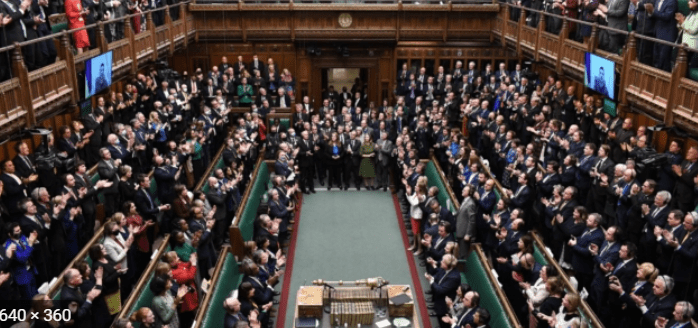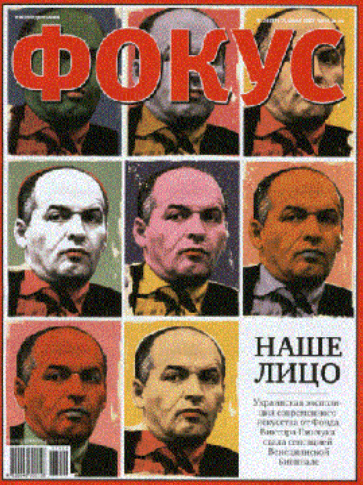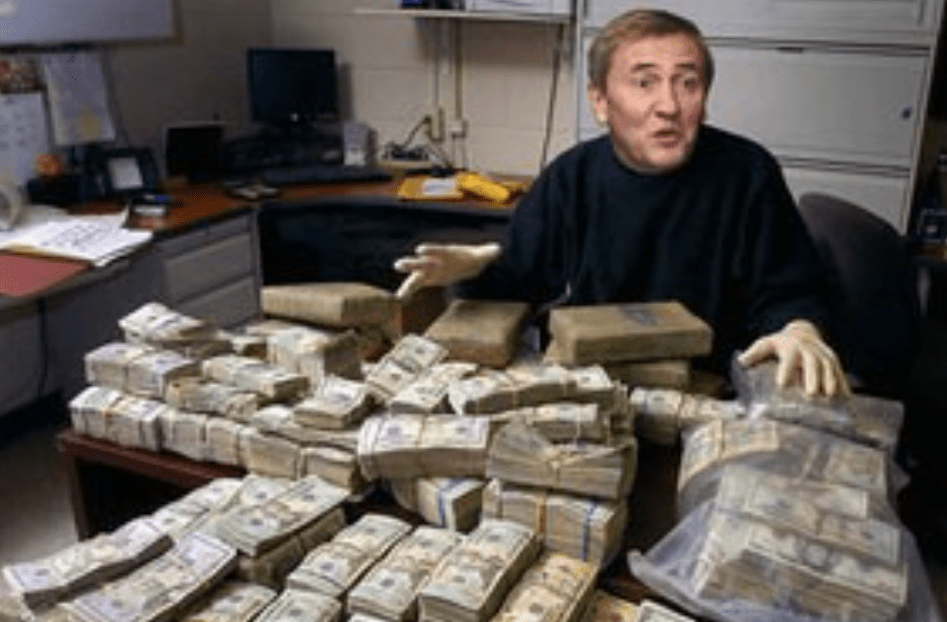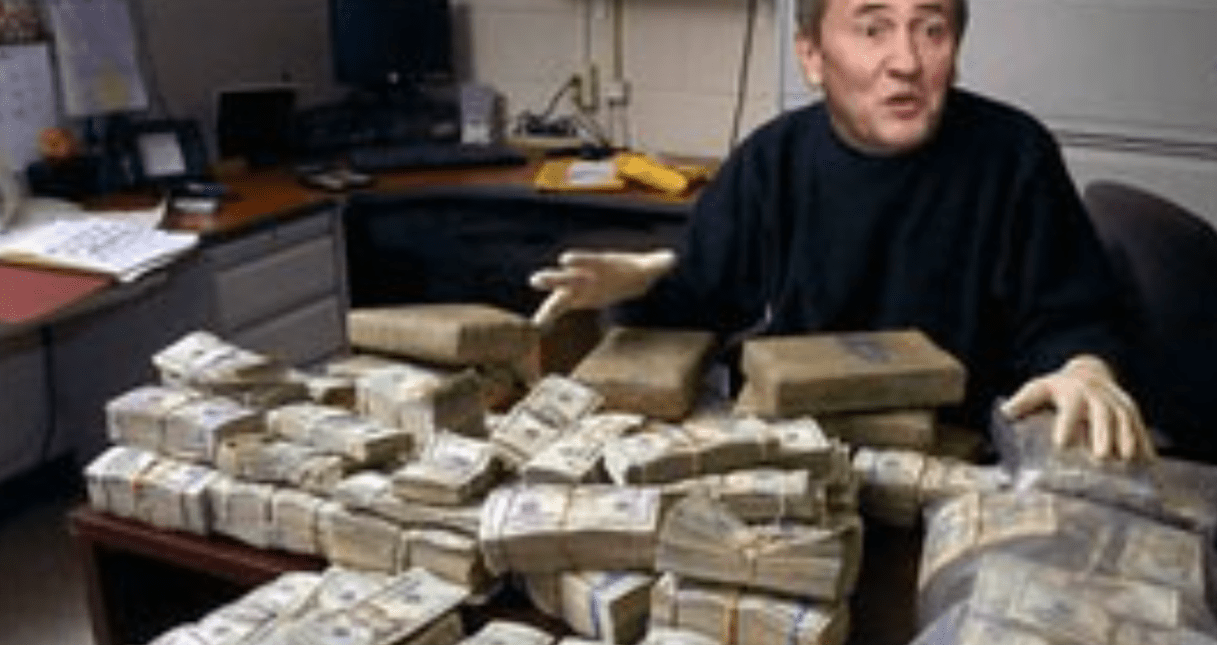By John Pickard
The Ukrainian president, Volodymyr Zelensky, has used video-link to address at least three of the main capitalist parliaments – the US Congress, the UK House of Commons and the German Bundestag. He has been feted as something of a hero in the Western press. But socialists should have no illusions about his class position and the government he represents in Ukraine.
It is primarily the working class of Ukraine who are bearing the brunt of the Russian invasion. Apartment blocks have been bombed-out, homes reduced to rubble, and there are large-scale and increasing civilian casualties. Millions of refugees have desperately escaped the turmoil of war, either outside Ukraine or to the West of the country.
These are the awful pictures of war, and they show a devastating humanitarian crisis being visited upon ordinary working-class people who a month ago might have looked like any other workers anywhere in Europe or the UK.
But in expressing outrage at Putin’s onslaught against Ukraine, socialists should not fall into the trap of imagining that Kyiv represents anything other than a government of oligarchs and the vested interests of a Ukrainian national elite. Volodymyr Zelensky portrays himself as a ‘man of the people’, especially now that he can wear green combat fatigues on Ukrainian and international TV. But looking into this election in 2019 and the position of ordinary workers in the Ukrainian economy presents a different picture: he has always been more ‘a man of the oligarchs’ than a man of the people.

Zelensky’s election in April 2019 owed a lot to a public perception that he really would deal with the corruption that was endemic in Ukraine, as it is in all of the former republics of the old USSR. It was precisely because he was not a ‘normal’ political figure that he came top of the first round of the presidential election, with 30% of the vote in field of dozens of candidates.
Servant of the People – and an ‘accidental’ president
Zelensky, trained as a lawyer, but a professional actor and comedian, had been notably famous for playing the part of an ‘accidental’ president on a Ukrainian TV show, called Servant of the People, in which a schoolteacher found himself, by accident, in the presidency. For the real election, he launched a party of the same name, Servant of the People.
He won the second round of the election by a landslide, with an overall vote of 73%, beating his opponent, (and former president) Poroshenko, in every region bar one, in the far West. Even in the East, he beat Poroshenko by a wide margin, getting 87% in Donetsk (those parts where the voting could be held) and 89% in Luhansk, with a similar figure in Odesa.
Although he stood on an anti-corruption platform, he has done little since to reduce the powers of the rich oligarchs in Ukraine. As it is in Russia, the oligarchs in Ukraine made their money in the ‘opening up’ of the economy of the USSR under Gorbachev and in the subsequent privatisations of industry and banking after Ukrainian independence in 1991.

As an aside, the Guardian (March 8) published a long article about the ease with which one particular Ukrainian oligarch, Dmitry Firtash, was able to wheedle his way into the British establishment, with no questions asked, despite the FBI being after him for his connections to Russian organised crime. “Firtash was Putin’s man in Ukraine,” the Guardian writer notes, “and yet Britain integrated him [so] enthusiastically into the establishment…”
But Dimitri Firtash is not an exceptional Ukrainian oligarch. Zelensky himself is personally a millionaire, as a result of his involvement in an entertainment production company, Kvartal 95, and his election was supported by the third richest oligarch in the country, Ihor Kolomoisky, whose TV station 1+1 hosted Zelensky’s sit-com.
Zelensky’s latest policy switch, on March 15, is to legalise Bitcoin. This might be seen as one of the exigencies of war – to facilitate the purchase of weapons, for example – but it is also a means of enabling oligarchs and corrupt officials to move money overseas with no questions asked.
Well down the list in ‘perceived levels of public corruption’
Despite Zelensky’s pledge on being elected not to “let down” his voters, public perceptions of corruption are getting worse. According to Transparency International, in a measure of “perceived levels of public sector corruption”, Ukraine is listed as 122 out of 188 countries, having gone down one place since 2021. Russia, incidentally, was ranked 136 in the same list, not a long way behind. In the last public votes to be held, local elections in October 2020, the Servant of the People party actually lost ground. Ukraine is no less a government of oligarchs today than it was before Zelensky was elected.
Again according to Wikipedia, after Zelenskyy’s inauguration, most of the leading figures of his Kvartal 95 company joined his administration in one capacity or another, for example as deputy heads of administration, and one case as Deputy Head of the Ukrainian Secret Service, the SBU.
It is easy to search on the internet to find the names and wealth of the richest oligarchs in Ukraine.According to Forbes, famous for listing the super-rich around the planet, the wealthiest Ukrainians include (this, again, from Wikipedia):
- Rinat Akhmetov, worth $7.6bn, from steel and coal.
- Victor Pinchuk, $2.5bn, from steel.
- Kostyantin Zhevago, $2.4bn, from mining
- Ihor Kolomoyskyi $1.8bn, from banking, investment
- Henadiy Boholyubov $1.7bn, from banking investments
- Petro Poroshenko $1.6bn, from confectionary
- Vadim Novinsky, $1.4bn, from steel.
In case there is any misunderstanding, coal, steel and banking were all state–owned in the era of the USSR. Their privatisation, as it was in all of the former republics of the USSR, was done in such a way as to enrich a tiny number of individuals, people with no other talent than having the right connections with the old state bureaucracy, or with organised crime, or both.

For example, another rich hopeful in the 2019 presidential race (although soundly rejected in the voting) had been Yulia Tymoshenko. In 1988, in the old USSR days, she and her husband rented out videos to make a living. Three years later, they founded the Ukrainian Petroleum Corporation, which within four years had become Energy Systems of Ukraine with a turnover of $11bn. Work it out: from video rentals to multi-billionaire in six years: that cannot possibly be ‘clean’ money, by any standards.
Richest 100 Ukrainians control over a quarter of GDP
In total, the top 100 wealthiest business people in Ukraine control around $44,5 billion, which accounted for 27% of Ukrainian GDP in September 2021.
In contrast, workers’ living standards have been squeezed, even under ‘man of the people’ Zelensky. According to the website Trading Economics, wages in Ukraine fell in January this year to the equivalent of £360 a month from £436 in December. That means that Ukrainian workers scrape along with around £5,000 a year, a fifth of the average wage in the UK.
We can draw a number of conclusions from this kind of data. The first is that the government of Volodymyr Zelensky has never functioned in the interests of Ukrainian workers, despite his high-sounding rhetoric against corruption. The second is that the Western ‘sanctions’ against corrupt oligarchs is for public-relations purposes only. It is carefully directed only at Russian oligarchs (and only some of them) whereas it fails to mention at any point their equally corrupt Ukrainian equivalents.
Socialists have to see the conflict in Ukraine from a class standpoint. We wave no red, white and blue, or for that matter, blue and yellow flags. The rottenness of the oligarchic system that props up Putin does not blind us to the rottenness of an identical set-up in Ukraine. We are opposed to all oligarchs. We should stand for the expropriation of all the wealth of all of the oligarchs, in other words of all of those who plundered the state resources in the republics of the former USSR, wherever such wealth can be found.




When the Economist considered the EU proposal to form an association agreement with Ukraine they said “Who would want to bind themselves to a huge, corrupt and impoverished state?”
That was when the Netherlands held a referendum on Ukrainian accession and it fell. End of story for Ukraine joining EU.
https://www.theguardian.com/world/2016/apr/06/dutch-voters-reject-closer-eu-links-to-ukraine-in-referendum
It has been brough to my attention that this phrase in the above article: “ordinary working-class people who a month ago might have looked like any other workers anywhere in Europe or the UK” might imply that we have a different attitude to European, as opposed non-European (eg Syrian) refugees. This is most definitely NOT the impression we wish to give. It is merely a reference to the fact that the lives of Ukrainian workers were relatively ‘normal’ a month ago.
In fact, in an earlier article we specifically criticised the hypocrisy of Eastern European leaders who are opening their borders to Ukrainians, which we do not oppose of course, yet these same governments were all for building a wall against Syrian and Iraqi refugees eight years ago. “Now, they are opening their borders” we wrote, “so long as the refugees are white”. We should make no distinction between refugees of any nationality, all of whom deserve the support and assistance of the labour movement.